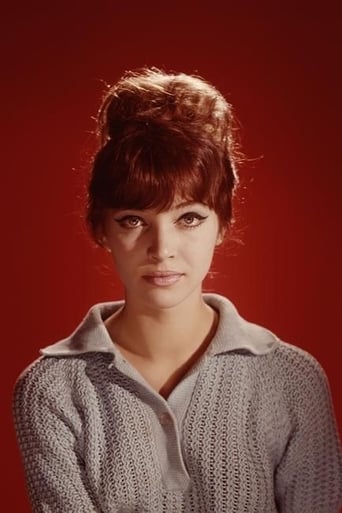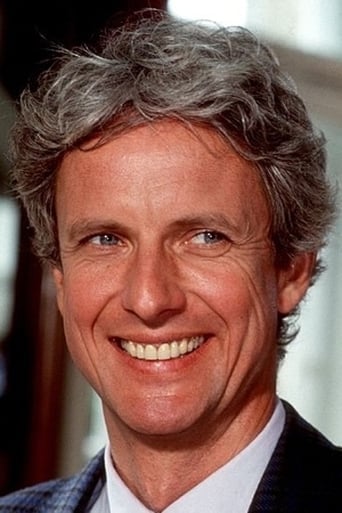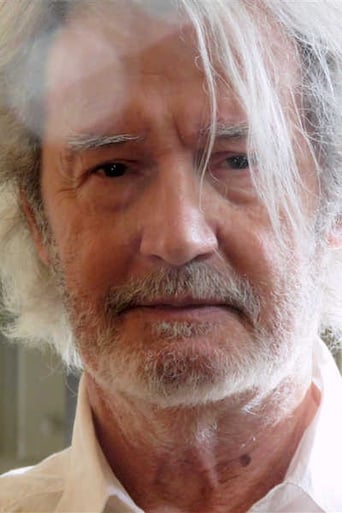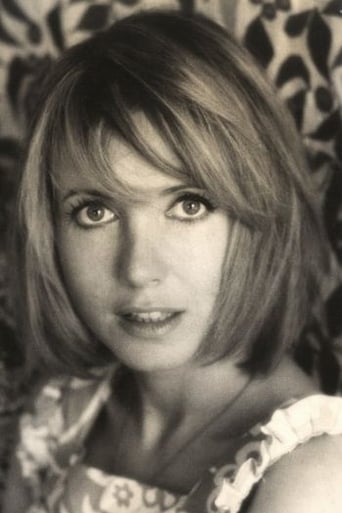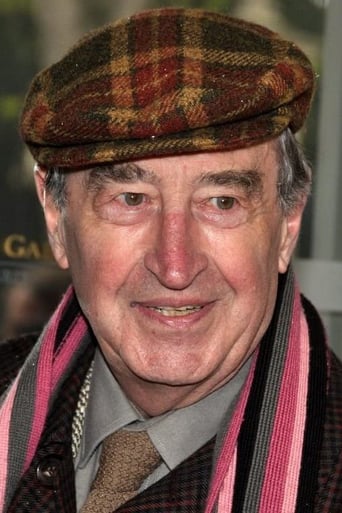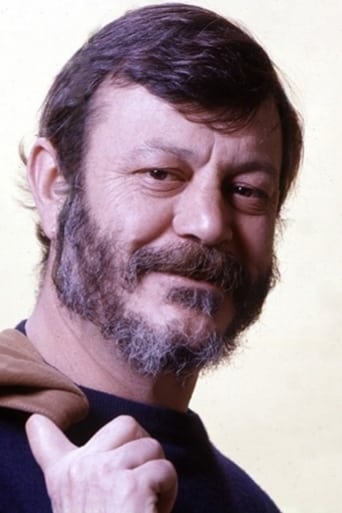RipDelight
This is a tender, generous movie that likes its characters and presents them as real people, full of flaws and strengths.
Casey Duggan
It’s sentimental, ridiculously long and only occasionally funny
Kaelan Mccaffrey
Like the great film, it's made with a great deal of visible affection both in front of and behind the camera.
robert-temple-1
This is a film of the novella by French author Julien Gracq entitled LE ROI COPHETUA, the English title of which is KING COPHETUA. The Belgian director André Delvaux worked closely with Julien Gracq to find mutually agreed ways to expand the story so that it would become cinematically possible, as the novella itself is essentially unfilmable. Delvaux loved making films of unfilmable books, as he often said, but this was the only one by Gracq which he attempted. (One novel by Gracq has been filmed, UN BALCON EN FORET (1978), and his only play, LE ROI PECHEUR, was filmed in Italian for Italian television in 1996, but neither of these films is available on DVD or video or has been reviewed for IMDb.) The reason why this film is called APPOINTMENT IN BRAY on IMDb is that its French title is RENDEZ-VOUS À BRAY. The Bray referred to is not Bray near Windsor in England, former home of Bray Film Studios, but a fictional village, Braye-la Foret, near Paris (the train station sign in the film adds an 'e' on the end of Bray, which the title of the film omits.) There is a real Bray in France named Bray-sur-Somme, but it is no connection with this story. This film when sold on DVD separately in France has no English subtitles, and the only way to get it with subtitles is to purchase the 7-DVD Collection of Delvaux's films, where all the material is subtitled. The DVD of this film has fascinating 'extras' including a joint interview of Delvaux and the film's female star, Anna Karina. In that remarkable interview, the two seem to be in love and in the middle of an affair (perhaps I am wrong, as Karina was married to Pierre Fabre at that time), and Karina is so charming, kittenish, naïve and like a giggling schoolgirl, that it is quite a revelation. (Gracq is not interviewed, but he was far too shy and reclusive for such a thing.) As for the film itself, it is a marvellously evocative story set in 1917, with flashbacks added (for the purposes of the film, not being present in the novella) to 1914. I have read the novella, which is haunting, brooding and brilliant in its descriptive power. It is impossible to convey all of that in a film, but a considerable amount of it comes through. In the novella, the sound of the guns at the Front is heavily stressed, and we hear that in the film also. The film has much less emphasis on the storm, the rain, the dripping leaves, the roaring treetops, and the eerie silence and darkness. (It is difficult to film darkness unless you want a black screen.) The male lead is played by Matthieu Carrière, who is perfectly cast as the charmingly innocent young man who has been summoned suddenly to Bray by telegram to visit his friend, who then never turns up. Karina is marvellous and does an excellent job in a part with minimal dialogue, where she has to convey much by mysterious silences, the way in which she carries a candelabra in the dark, her enigmatic failure to show emotion, and her sphinx-like refusal to communicate. All of that is fundamental to the story. For such a lively person, Karina must have had to try very hard indeed to suppress her natural vivacity and play the ghostly role of a character who never even gives her name. The film has a dream-like quality and a pervasive air of mystery, and is not only cinematically interesting, but important for those who love French literature.
Charlot47
Follows in many ways Delvaux's preceding work "Un Soir, un train", using the bleak wintry plains of Picardy. A film of secrets and nuances, playing with objective time and external reality, which will leave viewers who cannot appreciate its subtleties in the cold. Without an ending, you have to imagine what could happen in the light of what you think has happened (another of its references to our own impending ends).At root it is the story of Julien, a young man who most of the time is a fish out of water. From a modest family in Luxembourg, his country is overrun by the Germans in 1914 while he is a pianist in Paris. His friends there are Odile and her lover Jacques, a rich young composer who gets Julien a job on a newspaper while he goes off to join a fighter squadron. Later, Jacques asks Julien to meet him behind the front at Bray in his family's country house, which is shut up and looked after by a solitary housekeeper. Julien turns up, but Jacques never arrives.Around this central thread are spun many mysteries. Waiting at Bray for Jacques, with artillery thundering nearby, Julien reflects on their time together in Paris before the war. Memories of the three young people having fun remind us often of Truffaut's "Jules et Jim", though them all ending up naked in the River Marne has no ill effects. He also revisits his triumphs and humiliations. For Jacques has the assurance of riches and breeding, while Julien is a poor uncertain immigrant speaking French awkwardly. As well as their love of contemporary music, mainly Debussy and Franck, the three love films about Fantômas. Julien however has no girl to love.He also claims that he cannot fight for a country that no longer exists, which is almost certainly self-deception. On the train to Bray, he talks about the war to a bearded French soldier who is travelling with a striking silent woman. With difficulty finding the decayed and shuttered house, he is greeted by a beautiful but monosyllabic servant. At bedtime, in a dressing gown with her hair down, she shows him to a bedroom where, after offering herself silently, she stays the night. That could well be his fantasy but, like much else in the film, we do not know.In the morning he rushes across the fields to get a train back to Paris, but it leaves without him. Some reason that we have to guess keeps him at Bray, foreshadowing the eerie atmosphere of Chabrol's "Alice ou la dernière fugue".Superb mood-setting cinematography and first class music of the time are a joy for eyes and ears. While the male leads are perfectly adequate, the two females are entrancing. Bulle Ogier as Odile plays a fun blonde, her shoulder straps slipping and her food wobbling around her dinner plate. But Anna Karina dominates as the nameless enigmatic housekeeper, sphinx-like in leaving herself to be understood without words.
dbdumonteil
André Delvaux depicts a strange world where the frontier between dreams and reality becomes blurred.A not very accessible auteur,Delvaux is an acquired taste."Un Soir ...Un Train" is one of my all time favorites but "Rendez-Vous à Bray" well...Bulle Ogier and Anna Karina are the kind of French actresses I just cannot stand.I must say that,as Karina has few things to do here,she is quite good.Delvaux knows how to create a mysterious disturbing atmosphere.Take the scene on the train: the woman's looks are enough to generate a strange feeling.No need to argue about "why ain't you a soldier whereas I'm fighting to put an end to all wars?" .His technique is now really running well: the flashbacks almost always come from things the hero (Matthieu Carrière)spots in the mansion where he is waiting for a friend.Not that the trick is new: in their 1939 masterpiece,"Le Jour Se Lève" ,Marcel Carné and Jacques Prévert already pioneered the process (the teddy bear notably).But these ceaseless flashbacks - which made "Un Soir Un Train" even more impressive- really mesmerize the viewer who does not know where he stands anymore,in dream or reality ,in an old memory or in a movie...The movie in the movie was already present in "Un Soir Un Train" : the scene when Montand and his companions enter the odd tiny movie theater and watch a weird film is arguably my favorite in that movie.In "Rendez-Vous à Bray" ,Delvaux uses some Louis Feuillade's footage :"Fantomas " was one of the big blockbusters of the WW1 years in France ;today some critics talk about "Feuillade's brainwashing" .Delvaux seems to love popular literature :after the show,in the cafe ,Bulle Ogier tells us Souvestre-Allain's hero's tales in lavish detail (the director switches smartly from Sonia Danidov's madness to Karina's wandering in the corridors with skill);in "Un Soir ,un train" there was a short hint at Jean Ray's "Harry Dickson" .Based on a Julien Gracq short story which I have not read,"Rendez-vous à Bray " is visually a splendor.But whereas "Un Soir Un Train" was really,in its last sequences, very moving ,"Rendez-vous à Bray" hardly touched my imagination the way his former work had done.
taylor9885
Delvaux was one of those directors who kept on working in his own creative world, seemingly oblivious to the pressures of the commercial world. He got his start by playing the piano for screenings of silent films in Brussels in 1950, just as the hero does here. Then he did TV documentaries before making his first feature, The Man Who Had his Hair Cut Short. Like Un Soir, Un train that preceded it, Rendez-vous a Bray is very lovely to look at (cinematography by the great Ghislain Cloquet) but it unfolds in a sort of glacial calm that leaves me cold.Because the tone is so restrained, the acting so diminished in expression, the story never really engages the viewer. Mathieu Carriere was never my idea of a romantic lead (he was thinner than David Bowie), and Anna Karina, trying to start her career again after the breakup with Godard, just does the minimum, with no help from Delvaux. There are hints of a Jules et Jim type of triangle, with pixyish Bulle Ogier as the girl who would interrupt the passionate friendship of Carriere and van Hool, but it isn't fully developed. Delvaux is just too fixated on those beautiful interiors, and nothing, not even the carnage of the war--it's 1917--can get him out of them.
